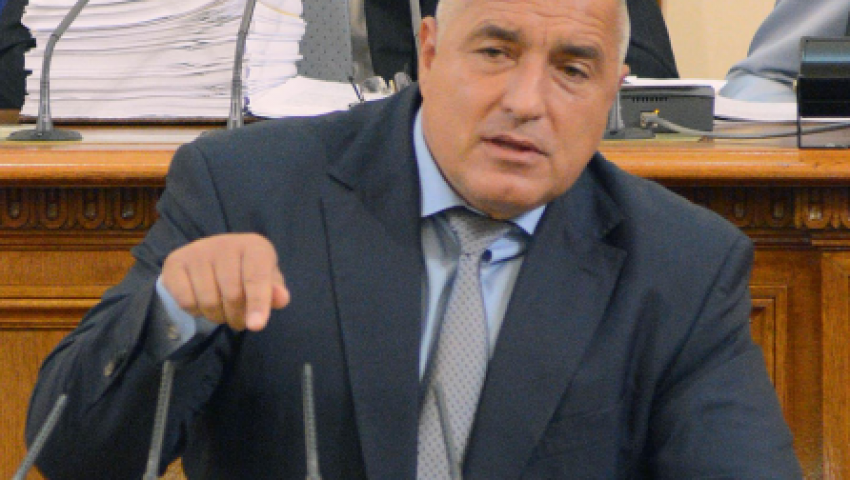Parliament Holds Extraordinary Sitting to Hear PM Borissov about Coronavirus Effort

Parliament held an extraordinary sitting on Tuesday to hear Prime Minister Boyko Borissov about the current situation in Bulgaria in connection with the COVID-19 pandemic and the effectiveness of the healthcare, economic and social measures undertaken so far.
The hearing was held on a motion of the opposition Bulgarian Socialist Party (BSP). An extraordinary sitting of Parliament convened for the same reason on April 21 had to be called off after it failed to reach the necessary quorum. The hearing had again been scheduled on a BSP motion but the MPs of the ruling coalition of GERB and the United Patriots, and of Volya, did not enter the plenary chamber so that a quorum could not be reached.
In Parliament on Tuesday Borissov said that the applications submitted so far under the 60/40 jobs retention scheme are 7,403, covering 101,849 employees. The Prime Minister said that with the rate of applications submitted every day it will be possible to save the jobs of more than 120,000 workers by the end of April.
Speaking at the start of the sitting, BSP MP Kristian Vigenin accused the ruling GERB party of "totally crossing out the oral Question Time in Parliament". Vigenin went on to admit as an undoubted fact that Bulgaria is one of the countries with a low coronavirus mortality rate and low incidence of the disease but said that this is not a reason "to gloss over problems" that created serious tension: the downplaying of the threat at the start, the shortage of personal protective equipment and test kits, the slow build-up of capacity for testing, constant changes in the restrictions that were put in place. The BSP wants to hear what comes next, whether the State has an exit plan, and on what conditions restrictions will be eased.
Borissov said that at the moment Bulgaria has 60,000 PCR tests. The MP said that the coronavirus task force is selecting target groups of the population for testing.
Borissov said further that the average number of people filing for unemployment benefits has dropped nearly thrice from April 7 to April 27, decreasing by 5,000 people in these 13 business days. Jobless people decrease between 300 and 400 on average per day.
Movement for Rights and Freedoms (MRF) MP Yordan Tsonev said that were it not for the 60-40 scheme, the jobless now would have been 200,000, instead of the current 90,000 people.
Borissov said that in Bulgaria many economic sectors continued to work, some at full speed, some at an even higher speed, such as farming, construction and IT.
The PM said that Bulgaria has the most liberal coronavirus measures in Europe.
At the end of the hearing GERB parliamentary group deputy floor leader Alexander Nenkov said that nothing different was heard at the sitting from what the government reports daily to the people and to the media.
BSP leader Kornelia Ninova countered by saying that this is not true. "Bulgaria does not have an exit plan - this is the news today," Ninova said.
MRF leader Moustafa Karadyi said that the anti-epidemic measures produced good results compared to what happened in other countries. Karadyi described as "satisfactory" the social and economic measures put in place so far. He noted that the coronavirus effort should also have a plan for restoration of the economic and of normal life.
United Patriots co-floor leader Iskren Vesselinov urged for engagement in a working dialogue on a way out of the crisis, where everyone should take part.
Volya leader Vesselin Mareshki said that "the democracy is jeopardized because Parliament has become a hostage in the internal leadership battle in the BSP". Volya wants a new revision of the 60/40 scheme for some sectors, revision of the assessments for defence spending and abolition of the state subsidy paid to parties represented in Parliament until the end of the incumbent National Assembly.
Source: BTA
